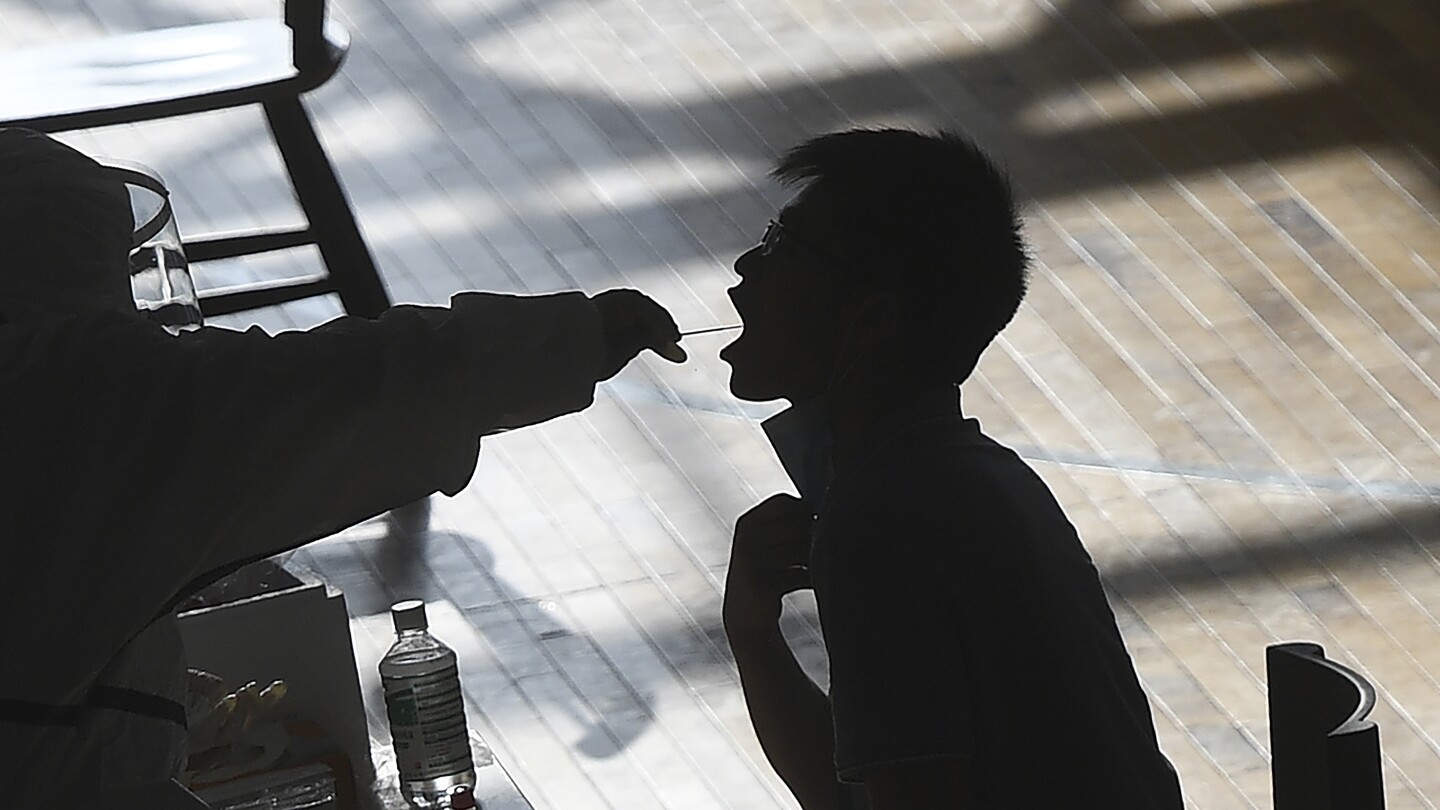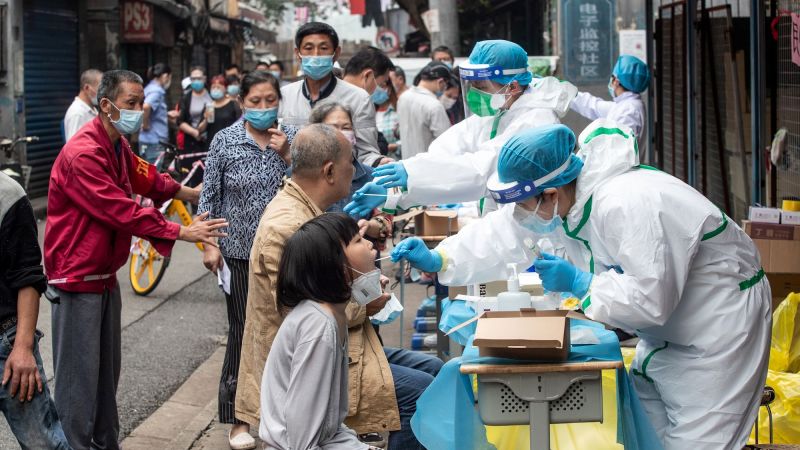Ocean County saw the average price of a home sold there hit $572,000 last year, according to data from the New Jersey Division of Taxation, as a steady stream of buyers shrugged off higher mortgage rates, only to find fewer choices in the market.
The price marked an 11.4% increase from 2023 and threatened to stretch the budgets of buyers who not long ago found Ocean County a reliable source of affordable housing. The average price in 2019, the year before the pandemic, was $365,158, the state data shows. That is an increase of 56.6% since 2019.
“On the sales end, I don’t really see it abating,” said John R. McDonough, owner and broker of Ocean Beach Sales & Rentals on the barrier island in Toms River. “We get a listing in and if it’s not crazily priced, it’s going to sell in a week or two.”
Ocean County’s home prices have risen steadily since the pandemic began, spurring people to leave densely populated New York and northern New Jersey for more safety, taking advantage of mortgage rates of less than 3% and technology that allowed them to work and go to school remotely.
Jersey Shore real estate market 2025:When will buyers catch a break?
Need a break? Play the USA TODAY Daily Crossword Puzzle.
Homeowners who bought or refinanced when rates are low have been more likely to stay put now that mortgage rates have climbed above 6%, cutting into inventory. Ocean County’s sales of 7,149 in 2024 were down 17% from 2023 and 47% from 2021, the data shows.
As a result, Ocean County had the ninth-highest average home price out of the state’s 21 counties last year. Before the pandemic, it ranked 11th.

What about Monmouth?Monmouth County average home price second highest in NJ: See which towns rose the fastest
Income isn’t keeping pace. Homes are considered unaffordable if the monthly payment takes up more than 30% of a household’s income. Last August, an Ocean County household with a median income of $87,863 would need to spend 58% of their income to afford a median-priced home, according to the Federal Reserve Bank of Atlanta.
(Average prices used by the state can be skewed by, say, multimillion-dollar homes that are sold. Median prices mean half are more and half are less.)
Some towns, once considered affordable, have seen prices spike. In Brick, for example, the average price climbed from $337,449 in 2019 to $571,500 last year, or 69%, thanks in part to buyers willing to commute to higher-paying jobs in northern New Jersey and New York, said Linda Riddle, a real estate agent with Keller Williams Preferred Properties in Berkeley.
But the Ocean County housing market also is getting a lift from oceanside towns, where bungalows have been replaced by million-dollar townhouses since Superstorm Sandy hit more than a decade ago, said Barbara Montone, an agent with Crossroads Realty in Lavallette.
Not afraid to build big:Twelve years after Sandy walloped Mantoloking, see the bigger, pricier homes built there
They are attracting buyers who are using them as vacation homes and can either pay cash or aren’t fazed by high mortgage rates.
“Prices are not going down,” Montone said.
Here are the top 10 Ocean County towns with the biggest increases in average home sales prices in 2024:
1. Bay Head
- Sales: 17
- Average price: $3.4 million
- Change in average price from 2023: +37.1%
2. Seaside Heights
- Sales: 81
- Average price: $567,277
- Change from 2023: +31.5%
3. Mantoloking
- Sales: 10
- Average price: $4.8 million
- Change from 2023: +27.5%
4. Eagleswood
- Sales: 17
- Average price: $416,429
- Change from 2023: +26.9%
5. Lavallette
- Sales: 41
- Average price: $1.6 million
- Change from 2023: +25.8%
6. Brick
- Sales: 773
- Average price: $571,500
- Change from 2023: +23%
7. Lakehurst
- Sales: 15
- Average price: $327,793
- Change from 2023: ++22.2%
8. Point Pleasant
- Sales: 188
- Average price: $731,890
- Change from 2023: +20.4%
9. Barnegat Light
- Sales: 21
- Average price: $1.4 million
- Change from 2023: +16.4%
10. South Toms River
- Sales: 26
- Average price: $344,191
- Change from 2023: +16.2%
New real estate commission rules:What should buyers, sellers do to save money?
Here are the rest of the towns. In some smaller towns, the percentages can be skewed if just a few homes sold during the year:
- 11. Point Pleasant Beach: $1 million, +15.9%
- 12. Lacey: $497,833, +14.9%
- 13. Ocean Gate: $393,399, +11.1%
- 14. Seaside Park: $919,323, +10.1%
- 15. Surf City: $1.8 million, +10%
- 16. Berkeley: $367,323, +8.8%
- 17. Long Beach: $2 million, +8.2%
- 18. Beach Haven: $1.6 million, +7.9%
- 19. Barnegat: $438,612, +7.7%
- 20. Tuckerton: $443,120, +7.3%
- 21. Beachwood: $414,684, +6.7%
- 22. Little Egg Harbor: $359,698, +6.1%
- 23. Jackson: $630,335, +6%
- 24. Manchester: $364,227, +5.5%
- 25. Stafford: $551,070, +5.2%
- 26. Ocean Township: $464,463, +4.5%
- 27. Toms River: $564,560, +4.4%
- 28. Plumsted: $452,892, +4.2%
- 29. Lakewood: $494,492, +4%
- 30. Pine Beach: $496,416, +3.6%
- 31. Harvey Cedars: $2.2 million, -1%
- 32. Ship Bottom: $1.1 million, -3.1%
- 33. Island Heights: $554,553, -18.9%
Michael L. Diamond is a business reporter for the Asbury Park Press. He has been writing about the New Jersey economy and health care industry since 1999. He can be reached at mdiamond@gannettnj.com.
In the wake of the COVID-19 pandemic, the real estate market in Ocean County has experienced a significant surge, with the average home price skyrocketing by 57%. This unprecedented increase has left both buyers and sellers in awe, as the demand for homes in this coastal region continues to rise.
With more people looking to escape crowded cities and embrace a more relaxed lifestyle, Ocean County has become a hotspot for those seeking a change of scenery. The picturesque beaches, charming towns, and strong sense of community have all contributed to the area’s newfound popularity.
As a result, home prices have reached record highs, making it a seller’s market like never before. Buyers are facing stiff competition and bidding wars, driving prices even higher. However, for those willing to invest in this booming market, the potential for long-term growth and appreciation is undeniable.
Whether you’re looking to buy or sell a home in Ocean County, now is the time to make a move. With prices on the rise and no signs of slowing down, the time to act is now. Don’t miss out on the opportunity to own a piece of this vibrant and thriving community.
Tags:
- Ocean County real estate
- COVID housing market trends
- Ocean County home prices
- Real estate market growth
- Pandemic impact on home prices
- Housing market statistics
- Ocean County property values
- COVID real estate trends
- Rising home prices in Ocean County
- Housing market analysis
#Ocean #County #average #home #price #COVID













You must be logged in to post a comment.